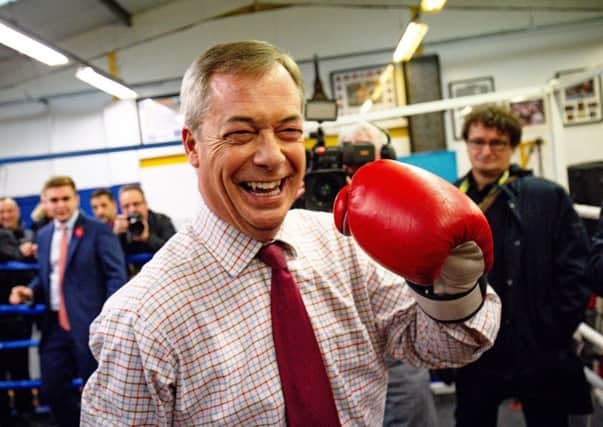Brexit and the death of Britain’s global influence – leader comment


In 1962, the then US Secretary of State Dean Acheson observed the UK “had lost an Empire but not yet found a role”. For supporters, “getting Brexit done” – the big issue in the election – is key to restoring Britain’s past glories.
However, this idea overlooks the role that won the UK considerable soft power in recent decades as a champion, albeit an imperfect one, of democracy, human rights and the rule of law. Added to the lasting gratitude for the decision to stand against Hitler in 1940 – the city of Oslo still sends a Christmas tree to London every year – this created an image that has served this country well and won over like-minded people, like Poland’s Donald Tusk, across the world.
Advertisement
Hide AdAdvertisement
Hide AdLast month, the outgoing European Commission President said what he “wouldn’t have dared to say a few months ago, as I could be fired for being too frank”. Brexit, Tusk argued, would not make Britain great, but achieve “exactly the opposite”. “Only as part of a united Europe can the UK play a global role, only together can we confront... the greatest powers of this world,” he said. “The UK will become an outsider, a second-rate player... Brexit is the real end of the British Empire.” Some will dismiss this, like Acheson’s remark, as a jibe from a foreigner, but Tusk is a friend, giving his best advice.
And on Wednesday in a Chatham House discussion, John Casson, foreign policy aide to David Cameron from 2010-14, warned about declining UK influence. “The bald fact for me is British foreign policy, as I was brought up to recognise it, came to an end in September 2013, when David Cameron made a conscious decision to stop being an activist Prime Minister on foreign policy” after losing a Commons’ vote on intervening in Syria. Other “smaller” actors on the world stage were now making “more of a difference because they have a clearer-eyed sense of their strategic intent and the power they hold”, he said. While Boris Johnson had spoken about standing up to human rights abusers, he had also sent “contradictory signals”. “Are we an open country that aspires to set an example and stand up for a certain type of norms and influence?” Casson asked.
Brexit and the philosophy of those behind it risk diminishing Britain on the world stage. If it does go ahead, our new Government needs to take steps to address a problem that would be bad for Britain but also, to an extent, the rest of the world.